-
 bitcoin
bitcoin $87959.907984 USD
1.34% -
 ethereum
ethereum $2920.497338 USD
3.04% -
 tether
tether $0.999775 USD
0.00% -
 xrp
xrp $2.237324 USD
8.12% -
 bnb
bnb $860.243768 USD
0.90% -
 solana
solana $138.089498 USD
5.43% -
 usd-coin
usd-coin $0.999807 USD
0.01% -
 tron
tron $0.272801 USD
-1.53% -
 dogecoin
dogecoin $0.150904 USD
2.96% -
 cardano
cardano $0.421635 USD
1.97% -
 hyperliquid
hyperliquid $32.152445 USD
2.23% -
 bitcoin-cash
bitcoin-cash $533.301069 USD
-1.94% -
 chainlink
chainlink $12.953417 USD
2.68% -
 unus-sed-leo
unus-sed-leo $9.535951 USD
0.73% -
 zcash
zcash $521.483386 USD
-2.87%
How does mining generate Bitcoin?
Bitcoin mining, a decentralized process ensuring blockchain growth and securing transactions, involves verifying transactions and maintaining the chronological order of the blockchain.
Jan 09, 2025 at 05:06 pm
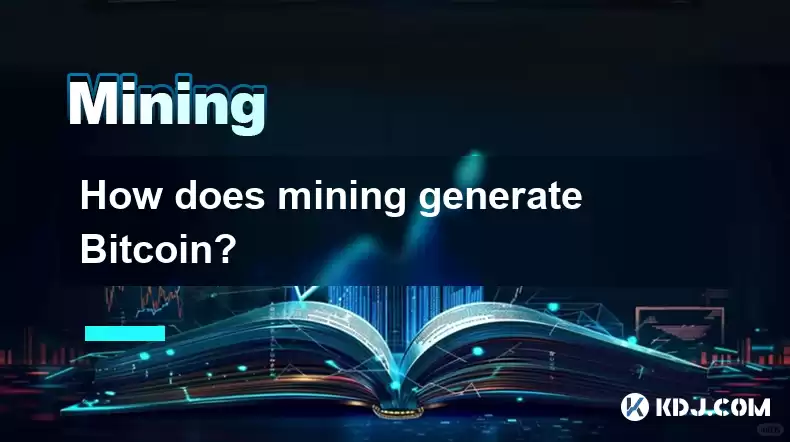
- Understanding Bitcoin Mining: Concepts and Processes
- Step-by-Step Guide to Bitcoin Mining
- Alternative Mechanisms for Acquiring Bitcoin
- Common Challenges and Solutions for Bitcoin Miners
- Future Prospects and Developments in Bitcoin Mining
Understanding Bitcoin Mining: Concepts and Processes
Bitcoin mining is the process of verifying and adding new transactions to the Bitcoin blockchain. It is a decentralized process that is carried out by powerful computers, known as "miners." The primary objectives of Bitcoin mining include:
- Transaction Verification: Miners validate transactions on the Bitcoin network to ensure their authenticity and integrity.
- Blockchain Maintenance: By adding new blocks of transactions to the blockchain, miners ensure its growth and maintain its chronological order.
- Decentralization: Mining helps distribute the power of the Bitcoin network among various participants, preventing it from being controlled by a single entity.
- Bitcoin Generation: As a reward for their efforts, miners receive a certain amount of Bitcoin upon successful completion of blocks.
Step-by-Step Guide to Bitcoin Mining
- Obtain Specialized Hardware: Bitcoin mining requires powerful hardware with specialized chips called ASICs (Application-Specific Integrated Circuits). These ASICs are designed specifically for efficient Bitcoin mining operations.
- Join a Mining Pool (Optional): Miners can choose to join mining pools, where their computational resources are combined to increase their chances of finding blocks and earning rewards.
- Download Mining Software: Specialized mining software is required to connect the hardware to the Bitcoin network and participate in the mining process.
- Configure Mining Parameters: Miners need to set up certain parameters within the mining software, such as the mining pool address, difficulty level, and wallet address for receiving rewards.
- Start Mining: Once the hardware and software are configured, miners can start solving mathematical problems called "hashes." The first miner to find a solution for a particular block adds it to the blockchain and earns the block reward.
Alternative Mechanisms for Acquiring Bitcoin
Apart from mining, there are alternative ways to acquire Bitcoin:
- Buying from Exchanges: Bitcoin can be purchased on cryptocurrency exchanges, which connect buyers and sellers.
- Trading for Goods and Services: Some merchants accept Bitcoin as a payment method, allowing users to purchase goods and services with Bitcoin.
- Receiving as Payment: Professionals and freelancers can accept Bitcoin as payment for their work, allowing them to earn Bitcoin directly.
- Investing in Bitcoin ETFs: Bitcoin Exchange-Traded Funds (ETFs) provide a regulated way to invest in Bitcoin without directly engaging in mining or trading.
Common Challenges and Solutions for Bitcoin Miners
Bitcoin mining involves several challenges that need to be addressed:
- High Energy Consumption: Mining requires significant amounts of electricity, which can be costly and impact the environment. Solutions include optimizing hardware, using renewable energy sources, and deploying energy-efficient mining practices.
- Hardware Obsolescence: ASIC hardware becomes obsolete over time, requiring miners to regularly upgrade their equipment. Proper budgeting and timely hardware replacements are key to staying competitive.
- Mining Difficulty: The difficulty of Bitcoin mining increases as the network grows. Adapting to the increasing difficulty by investing in more powerful hardware or joining larger mining pools can mitigate this challenge.
- Competition: Mining has become increasingly competitive, reducing individual miners' chances of finding blocks. Joining mining pools or utilizing cloud mining services can enhance profitability.
- Transaction Fees: Miners may face fluctuating transaction fees, which can impact their profitability. Understanding the market dynamics and adjusting mining strategies accordingly is essential.
Future Prospects and Developments in Bitcoin Mining
The future of Bitcoin mining involves several potential advancements:
- Energy-Efficient Technologies: Innovations in chip design, such as Application-Specific Integrated Circuits (ASICs), and the use of renewable energy sources aim to minimize the environmental impact of mining.
- Cloud Mining Platforms: Cloud mining services offer access to remote mining facilities, allowing individuals to mine Bitcoin without the need for specialized hardware and technical expertise.
- Artificial Intelligence (AI): AI algorithms are being explored to optimize mining operations, increase efficiency, and predict market trends.
- Quantum Computing: Quantum computers pose potential challenges to Bitcoin mining, and researchers are exploring quantum-resistant cryptography to maintain the security of the blockchain.
- Government Regulations: Regulatory frameworks for Bitcoin mining are evolving, and miners need to stay informed about potential policies and legal implications.
FAQs
- Why is Bitcoin mining important? Bitcoin mining plays a crucial role in the maintenance, security, and growth of the Bitcoin network.
- How much does it cost to mine Bitcoin? Mining costs vary depending on hardware, electricity costs, and pool fees. Research and due diligence are necessary to estimate the expenses accurately.
- Can I mine Bitcoin on my own? Individuals can mine Bitcoin on their own, but it requires specialized hardware and substantial electricity consumption. Joining mining pools is often more profitable for smaller-scale miners.
- Is Bitcoin mining still profitable? Profitability depends on the current market price of Bitcoin, mining difficulty, and operational costs. Miners need to carefully evaluate their expenses and potential earnings before investing in mining.
- What is the future of Bitcoin mining? The future of mining involves advancements in energy efficiency, cloud mining services, and the potential impact of quantum computing and government regulations.
Disclaimer:info@kdj.com
The information provided is not trading advice. kdj.com does not assume any responsibility for any investments made based on the information provided in this article. Cryptocurrencies are highly volatile and it is highly recommended that you invest with caution after thorough research!
If you believe that the content used on this website infringes your copyright, please contact us immediately (info@kdj.com) and we will delete it promptly.
- Blockchains, Crypto Tokens, Launching: Enterprise Solutions & Real Utility Steal the Spotlight
- 2026-01-31 12:30:02
- Crypto Market Rollercoaster: Bitcoin Crash Recovers Slightly Amidst Altcoin Slump and Lingering Fear
- 2026-01-31 13:10:01
- Solana's Stumble and APEMARS' Rise: Crypto Investors Navigate Volatile Markets
- 2026-01-31 13:05:01
- Bitcoin Options Delta Skew Skyrockets, Signaling Intense Market Fear Amidst Volatility
- 2026-01-31 13:00:02
- Cardano Secures Tier-One Stablecoin: USDCX Arrives Amidst Global Regulatory Push
- 2026-01-31 13:00:02
- A Shining Tribute: Oneida Woman, Washington's Army, and the New $1 Coin
- 2026-01-31 12:55:01
Related knowledge
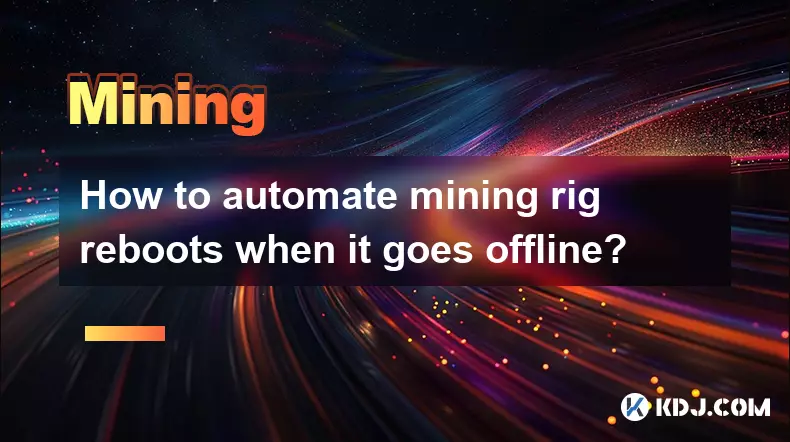
How to automate mining rig reboots when it goes offline?
Jan 23,2026 at 11:00pm
Monitoring System Integration1. Deploy a lightweight agent on the mining rig’s host OS that continuously reports hash rate, GPU temperature, and pool ...
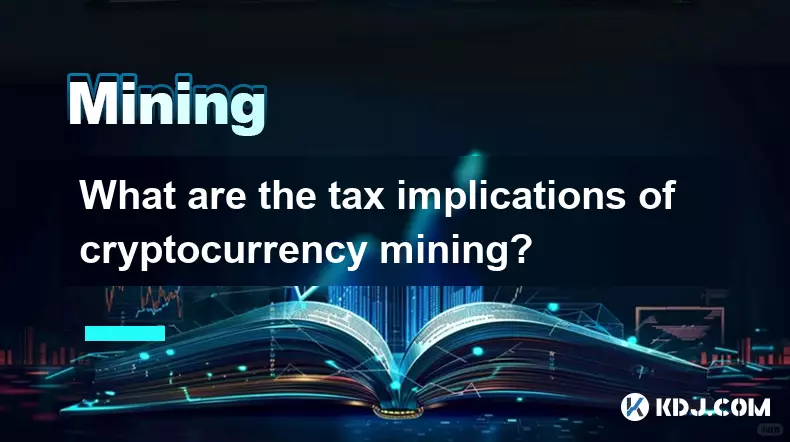
What are the tax implications of cryptocurrency mining?
Jan 23,2026 at 02:40am
Tax Treatment of Mining Rewards1. Cryptocurrency received as a reward for mining is treated as ordinary income by the IRS at the fair market value on ...
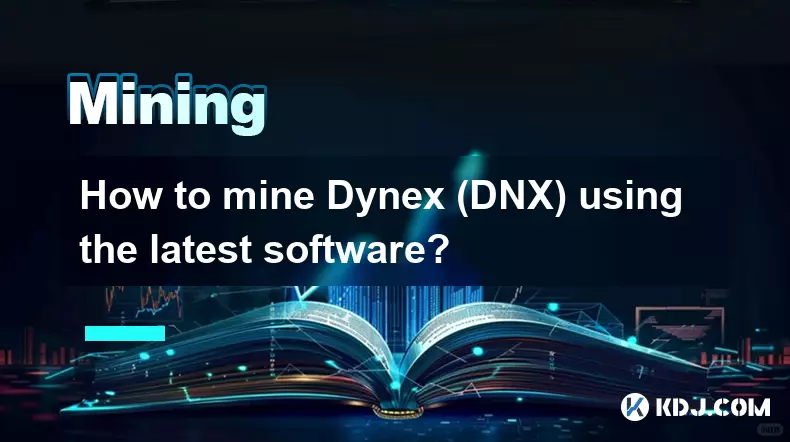
How to mine Dynex (DNX) using the latest software?
Jan 22,2026 at 10:00am
Understanding Dynex Mining Fundamentals1. Dynex (DNX) operates on a proof-of-work consensus mechanism optimized for neuromorphic computing workloads, ...
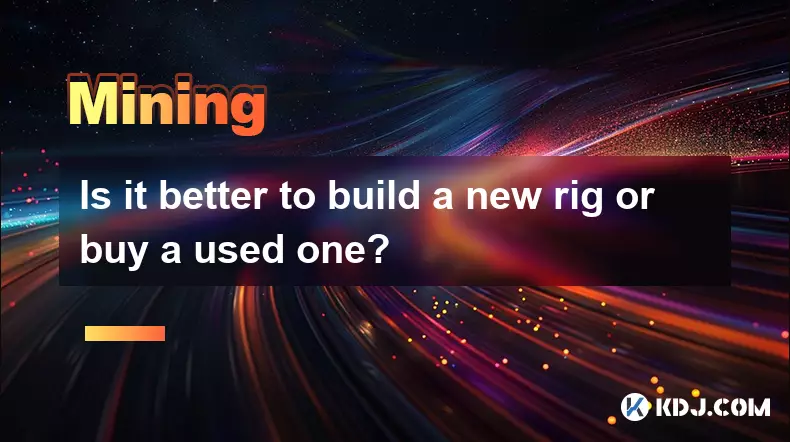
Is it better to build a new rig or buy a used one?
Jan 24,2026 at 10:20pm
Cost Efficiency Analysis1. New mining rigs come with manufacturer warranties, typically covering components for one to three years. This assurance red...
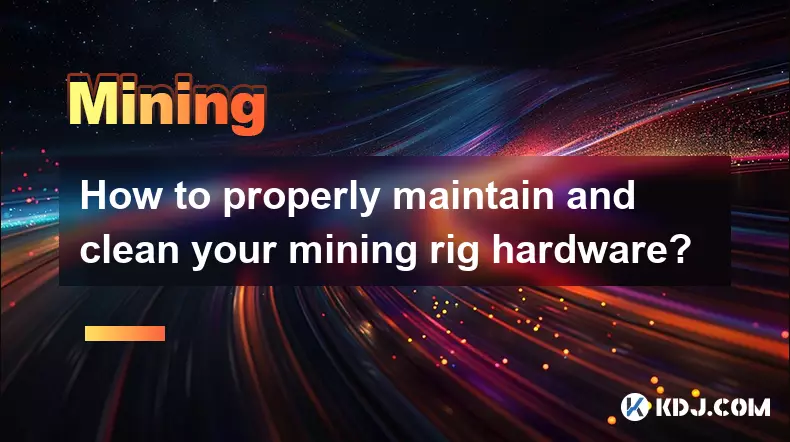
How to properly maintain and clean your mining rig hardware?
Jan 19,2026 at 11:00am
Cooling System Inspection and Optimization1. Dust accumulation inside fans and heatsinks directly reduces thermal dissipation efficiency, leading to h...
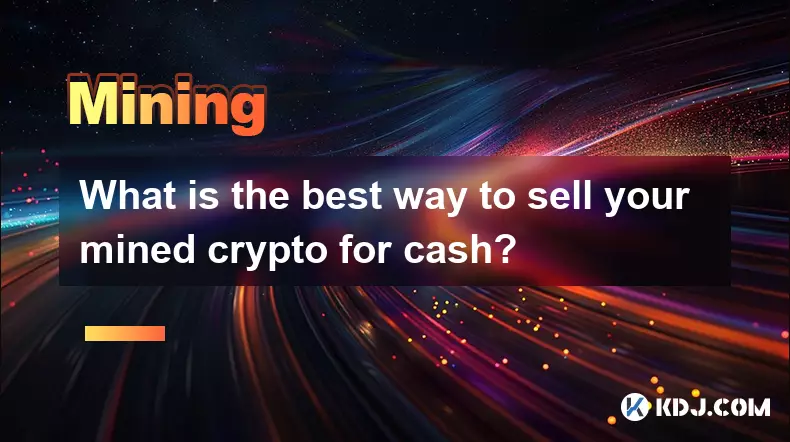
What is the best way to sell your mined crypto for cash?
Jan 20,2026 at 02:59am
Choosing the Right Exchange Platform1. Select an exchange with strong regulatory compliance and a proven track record of secure withdrawals. Platforms...

How to automate mining rig reboots when it goes offline?
Jan 23,2026 at 11:00pm
Monitoring System Integration1. Deploy a lightweight agent on the mining rig’s host OS that continuously reports hash rate, GPU temperature, and pool ...

What are the tax implications of cryptocurrency mining?
Jan 23,2026 at 02:40am
Tax Treatment of Mining Rewards1. Cryptocurrency received as a reward for mining is treated as ordinary income by the IRS at the fair market value on ...

How to mine Dynex (DNX) using the latest software?
Jan 22,2026 at 10:00am
Understanding Dynex Mining Fundamentals1. Dynex (DNX) operates on a proof-of-work consensus mechanism optimized for neuromorphic computing workloads, ...

Is it better to build a new rig or buy a used one?
Jan 24,2026 at 10:20pm
Cost Efficiency Analysis1. New mining rigs come with manufacturer warranties, typically covering components for one to three years. This assurance red...

How to properly maintain and clean your mining rig hardware?
Jan 19,2026 at 11:00am
Cooling System Inspection and Optimization1. Dust accumulation inside fans and heatsinks directly reduces thermal dissipation efficiency, leading to h...

What is the best way to sell your mined crypto for cash?
Jan 20,2026 at 02:59am
Choosing the Right Exchange Platform1. Select an exchange with strong regulatory compliance and a proven track record of secure withdrawals. Platforms...
See all articles





















![Ultra Paracosm by IlIRuLaSIlI [3 coin] | Easy demon | Geometry dash Ultra Paracosm by IlIRuLaSIlI [3 coin] | Easy demon | Geometry dash](/uploads/2026/01/31/cryptocurrencies-news/videos/origin_697d592372464_image_500_375.webp)




















































